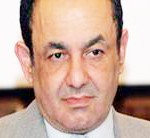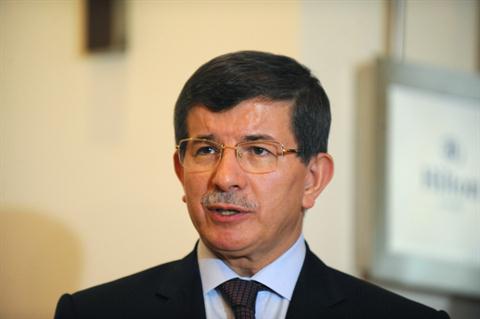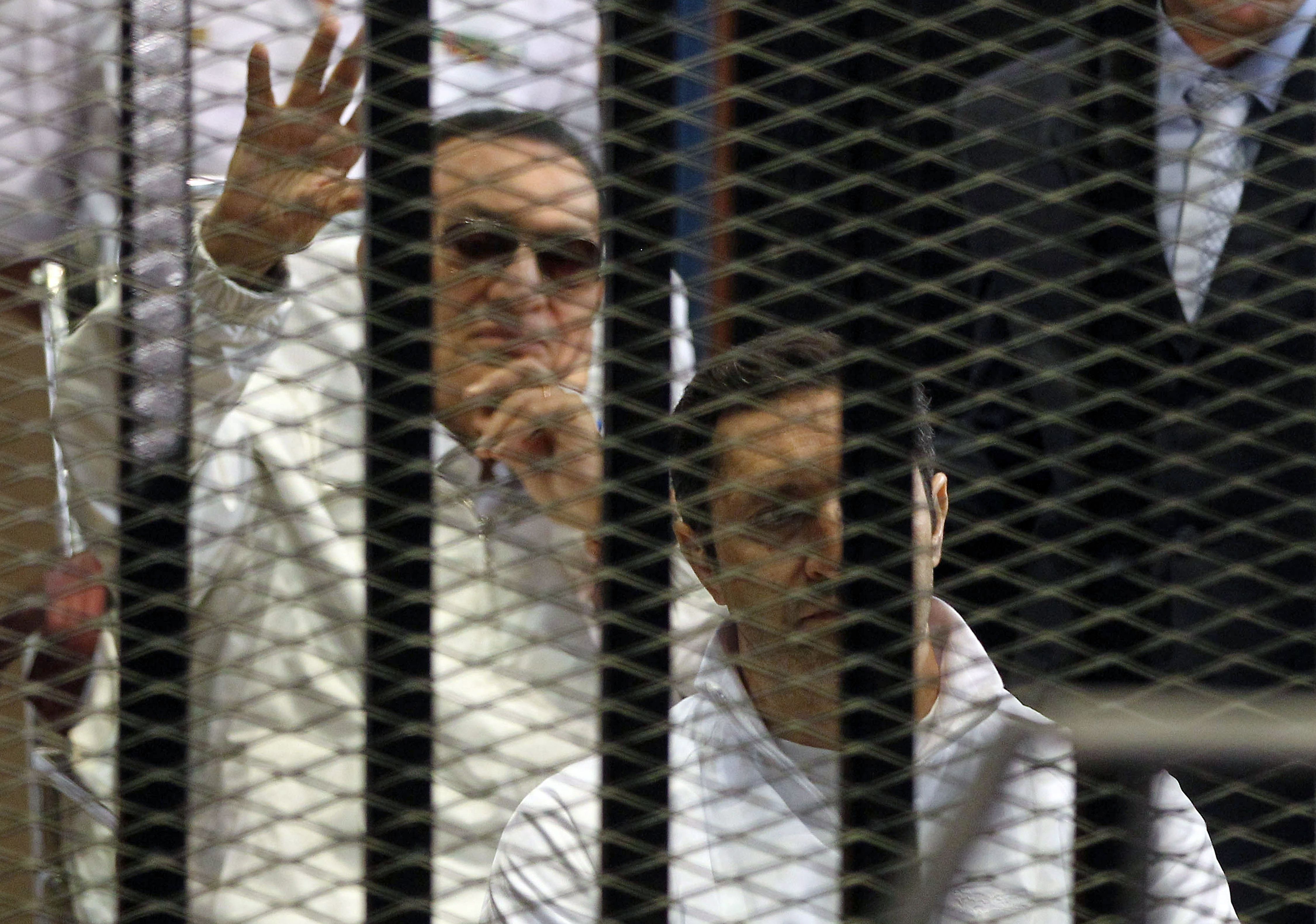Egyptian columnists in several op-ed pages have explored the latest sectarian incident in Giza’s village of Dahshour and tried to analyse the hard mission of El-Ganzouri’s government. Some other opinion writers have focused their writings on Morsy’s priorities and his choice to pick Hesham Qandil as Egypt’s new prime minister.
Mohamed Salmawi
Who flared up the sectarian strife?
Al-Masry Al-Youm newspaper

In his column, Mohamed Salmawi refers to the recent sectarian incident in Giza’s Dahshour village where 12 people were injured when a Christian laundry worker burnt the shirt of a Muslim client. He cites a headline of a story published in one of the biggest newspaper stating that the ‘laundry worker has flared up the sectarian strife’. Salmawi criticises the wording of the story’s title arguing that media plays a role in adding fuel to the already dire sectarian situation.
The Christian laundry worker’s house was the one set on fire by a group of five Muslims who attacked the dwelling with Molotov cocktails. The Copt’s only fault was burning the shirt while ironing it, thus the writer denounces the newspaper’s assertion in its headline that he was the instigator of the incident. Salmawi concludes his article explaining that security officers have already arrested six of those involved in the disturbance, but that the newspaper was not patient enough to know the prosecution’s decision in order to give a fair overview of the situation and not further antagonise the conflict. Salmawi finally writes that the Muslim man and his fellows might soon be proven the real perpetrators of the incident, not the Christian man as mentioned in the newspaper.
Amr Al-Shobaki
Thank El-Ganzouri’s government
Al-Masry Al-Youm newspaper

It is doubtless that Kamal El-Ganzouri’s government took their positions in one of Egypt’s toughest stages. Amr Al-Shobaki argues that the premier’s cabinet unluckily inherited a set of heavy burdens from the previous 30 years of Mubarak’s dark rule. He argues that El-Ganzouri has withheld no effort in safeguarding the country from many economic and political crises. Many Egyptians have been to the post-revolution parliament, as a body finally coming to life, to pull up the oppressed political forces. Al-Shobaki states he was struck with disappointment to see parliamentarians chiding El-Ganzouri and his government, regarding them as remnants of the old regime.
It is true that some of the ministers of the old government were not qualified enough to assist El-Ganzouri in his hard mission, but the premier himself has carried a lot on his shoulders since assuming his position. Requests to alter El-Ganzouri’s government before the presidential elections aimed at nothing but pushing a Muslim Brotherhood cabinet to supervise the elections. Wrapping up his column, Al-Shobaki lauds political forces which did express their gratitude to El-Ganzouri for being one of the most responsible prime ministers that Egypt has ever witnessed. The new government has to bear in mind that Mubarak’s bequest is arduous enough for anyone to change in the span of one day, one month or even one year.
Emad Al-Din Hussein
Omaima Al-Khalil
Al-Shorouk newspaper

It is a difficult mission to rouse an audience with Islamist leanings. Emad Al-Din Hussein recalls his experience while attending a concert held by the Lebanese singer Omaima Al-Khalil in the government of Damietta. He praises the noble bearing of the artist who, for him, has managed to dash the stereotype of the typical Lebanese singer. After crooning a couple of songs, Hussein expressed his admiration for Al-Khalil who interrupted the concert to salute the Palestinian case.
Hussein continues to reiterate the joyful experience of listening to the Lebanese voice throughout which Hamdeen Sabahy, who equally enjoyed the spectacle, was sitting next to him. Wrapping up his column, Hussein affirms that Egypt’s power stems from its own people, not from an illusion of influence practised by political powers. To have good listeners and readers is always more important to have brilliant thinkers, artists and writers. He concludes his piece denouncing the rising tide of meaningless Egyptian songs commonly heard in tuk-tuk and taxis all over the country.
Ibrahim Mansour
Rushing with the constitution
Al-Tahrir newspaper
Looking at the Constituent Assembly as it drafts the constitution, Ibrahim Mansour believes that the developments occurring with this regard mean that there are numerous attempts to rapidly finalise the constitution underway. He argues that the constitution was already written, even before the first court ruling to dissolve the first Constituent Assembly, adding that all the talks being held now are part of an act. In Mansour’s estimation, the coming constitution does not reflect a country that is heading towards democracy. He even asserts that some of the articles coming to light are even worse than those in the 1971 constitution. The writer cities examples of articles relating to the public freedoms and rights, showing his concern that the coming constitution would suppress these issues.
He criticises the head of the Constituent Assembly, Hossam Al-Gheriany, for leading the Supreme Council of Justice after the 25 January revolution and his failure to grant judges the independence for which they strive. He further condemns Counselor Mahmoud Al-Khodairy, who has been struggling for democracy during Mubarak’s era, but now remains toothless in the Constituent Assembly. Mansour finally hails all members of the body to properly write a constitution that genuinely reflects Egypt and its people, not that of the Islamist wave or the ruling Muslim Brotherhood.
Moataz Billah Abdel-Fatah
If I were in Morsy’s shoes
Al-Watan newspaper

In his column, Moataz Billah Abdel-Fatah, analyses President Morsy’s priorities. He states that the first wise thought Morsy should have in mind is answering all questions that start with ‘what’ not ‘who’. In other words, Abdel-Fatah advises Morsy to decide whether he wants to create a technocratic government and lie on the peak of the executive pyramid or form a partisan coalition government that brings together a big number of politicians? In the writer’s estimation, Morsy would be making his first mistake if decided to blend the two ideas together. Abdel-Fatah states that if he were in Morsy’s shoes, he would pick Ibrahim Mahlab instead of Hesham Qandil as his prime minister. He praises the former for having the experience and ability to lead in difficult conditions.
The writer expresses his concerns as to who will assume the positions at the head of ministries such as that of media and information, education, Awkaf and culture. Abdel-Fatah suggests that if he were to choose for the cabinet he would fetch persons affiliated with political parties, especially the Muslim Brotherhood’s Freedom and Justice Party. In this case, it will be the responsibility of each minister to create supreme councils under the umbrella of his ministry. After about two months of the operation of the ministries, the writer suggests receiving feedback from the public and the media to help in concluding a fair assessment of these institutions.



